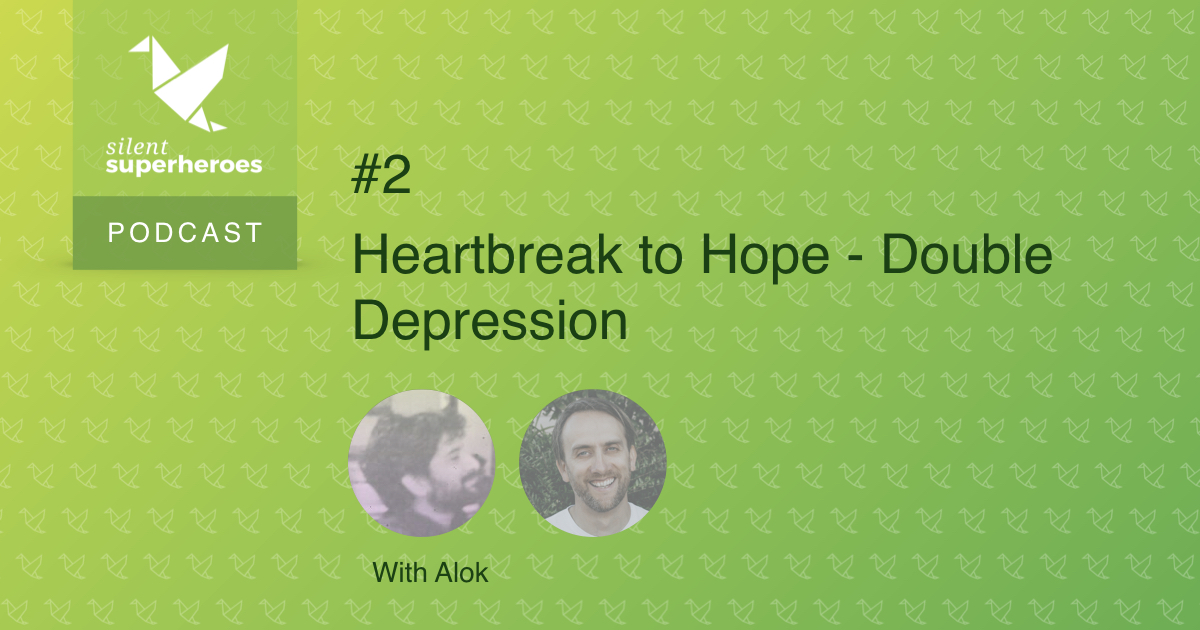Alok lives with double depression while having a career in Software Quality Assurance. Alok and I are old friends who met at the final table of a poker tournament. He was the first person to describe depression to me, and it wasn’t until later I realized he had described my experiences. Because Alok shared his experience, I knew where to go when I was diagnosed with bipolar depression. It’s his ability to articulate the depressive experience that makes him a great guest.
Listen To Episode 2
Podcast: Play in new window | Download (Duration: 58:59 — 38.1MB)
Show Notes
In this episode of Silent Superheroes, Alok talks about the middle school heartbreak that introduced him to depression. He shares his long journey with therapy and medication. We discuss the mundane nature of suicidal ideation and the perceived difference between physical and mental health. Alok successfully manages his mental health at work, As a result, he offers words of cautious hope to those just starting their journey with double depression.
In addition to his full time job, Alok co-hosts the Race Invaders podcast, an ongoing dialogue about race, politics, and the search for a universal response to oppression.
Links
- The Race Invaders Podcast (podcast)
- Robert Sopolsky depression lecture (video)
- Beck Depression Inventory (resource)
About Double Depression
Double depression is a complication of dysthymic disorder, or dysthymia. Dysthymia is characterized by a chronic, depressed mood combined with one or two other symptoms of clinical depression (such as low energy or low self-esteem). This low, dark mood – that some call the “veil of sadness” – occurs nearly every day and can sometimes persist for many years
Over time, symptoms worsen for more than half of people with dysthymia leading to the onset of a full syndrome of major depression. Double depression is diagnosed when dysthymia and major depression occur together.
Getting Support
Remember, the people you hear on Silent Superheroes are sharing their opinions about mental health and mental illness. They are not giving advice. For that reason, please consult with your care provider before making a change to your treatment approach.
It’s important to take your mental health seriously. Consequently, if you need to speak to someone you can call 1-800-273-8255, or text crisistextline.org on 741741. Both provide 24×7 confidential counseling to people in the United States. Worldwide visit http://iasp.info/resources/Crisis_Centres/
Because you listened to the podcast, you can help others find it by leaving us a review on iTunes. Or if you don’t use iTunes, leave a review on your favorite podcasting service.


